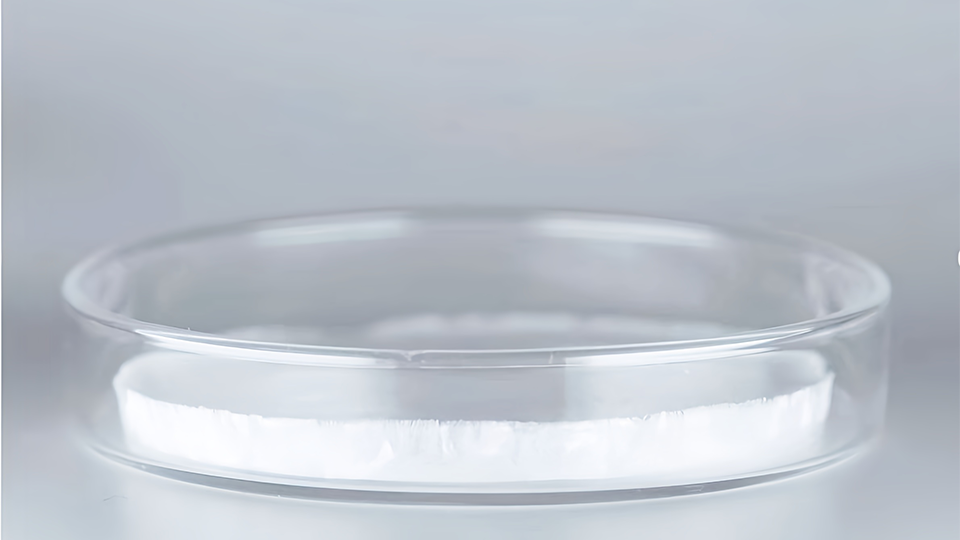

【Introduction】
Humanized collagen is a type of collagen produced through bioengineering technology.Based on the genetic sequence of human collagen,it is expressed in microorganisms (such as Escherichia coli) and produced on a large scale through optimization and recombination technology.This collagen has a highly similar or identical structure to human collagen,and therefore doesn’t cause immune rejection when used,and is suitable for various fields such as skin care and medical cosmetology.
【Chemical Properties】
1、Molecular Structure. Humanized collagen usually consists of amino acids connected by peptide bonds.Its primary structure is similar to that of collagen in the human body,mainly containing a specific proportion of amino acids such as glycine, proline and hydroxyproline.These amino acids are arranged in a specific way to form a unique triple helix structure,which is a unique structural feature of collagen.
2、Solubility. Humanized collagen has low solubility in water,but its solubility can be improved under acidic or alkaline conditions.By changing the pH or adding specific solvents,collagen can be made better soluble for processed and application.
3、Stability: The stability of collagen is influenced by various factors,including temperature,pH,and enzymatic action.Under appropriate conditions,humanized collagen can maintain stability for a relatively long time;however,under high temperatures or extreme pH conditions,its structure may undergo denaturation,to lead to loss of function.
4、Biocompatibility:Since humanized collagen is derived from human body or genetically engineered to mimic human collagen, it has good biocompatibility,is unlikely to cause immune response,and is suitable for using in medical and cosmetic products.
5、Biodegradability:Humanized collagen can be broken down by specific enzymes (such as collagenase) in the body and eventually converted into water and carbon dioxide.This property makes it an ideal biomaterial for applications tissue engineering,drug delivery systems and other fields.
6、Mechanical Properties:Humanized collagen has certain mechanical strength and elasticity,which depends on its molecular weight, degree of crosslinking and other factors.By adjusting these parameters,the physical properties of collagen-based materials can be optimized to meet the needs of different applications.
【Advantages】
1、Humanized collagen is 100% homologous to the human body.Because it is derived from the human genetic sequence,humanized collagen is fully matched to the collagen in the human body and will not trigger a rejection reaction.
2、High hydrophilicity and bioactivity.Humanized collagen has good hydrophilicity and bioactivity,which helps to keep skin moisture and promote the regeneration of skin cells.
3、Strong stability.Compared to traditional animal-derived collagen,humanized collagen is more stable and less prone to denaturation.
4、High safety. It avoids the risk of viruses that may be carried by collagen of animal origin, to make it safer for use.
【Grade】
Humanized collagen is classified into different grades according to its properties and uses,mainly based on the industry standard for medical devices titled "Recombinant Humanized Collagen."According to this standard,recombinant humanized collagen is mainly classified into two major types——Type A and Type B:
(1)Type A Recombinant Humanized Collagen
① Definition: Type A refers to materials that don’t contain amino acid sequences from non-human collagens, including but not limited to:
- Full-length amino acid sequences (without triple helix structure) encoded by specific human collagen type genes;
- Fragments of partial amino acid sequences encoded by specific human collagen type genes;
- Combinations of functional fragments of human collagen (whose amino acid sequences don’t contain non-human collagen amino acid sequences such as linking amino acids 、labeling amino acids and so on).
② Features: Type A recombinant humanized collagen doesn’t contain a “protein tag”, which means that it is highly similar to the body's own collagen after being implantated into human tissues, with excellent compatibility and tolerance, and very low probability of allergic, resistance and other reactions.
③ Application: Mainly used for medical implants, such as skin fillers, tissue repair materials, etc.
(2)Type B Recombinant Humanized Collagen
① Definition: Type B refers to materials that have non-human collagen amino acid sequences such as linking amino acids and labeling amino acids added to the combination of functional fragments of human collagen.
② Features:Type B recombinant humanized collagen contains “protein tags”,which may cause the body's immune response,so it is less compatible and less well tolerated than type A.
③ Application:Mainly used for external products such as skin care products,wound care materials, etc. It isn’t recommended for direct implantation into human tissues.
【Packaging and Storage】
Packaging:
1、Sealing. Humanized collagen products should be packaged in a sealed manner to prevent the intrusion of air,moisture and microorganisms.Commonly used packaging materials include glass bottles,plastic bottles,aluminum foil bags and so on.
2、Light protection.Light may affect the stability of collagen,so the packaging should be able to effectively block light.Opaque packaging materials or an additional light-blocking layer on the outer packaging can be chosen.
3、Label. The package should have clear labels with the product name,batch number,manufacture date,expiration date,manufacturer,ingredient information, usage instructions and precautions.
4、Shockproof.In the process of transportation,shockproof measures should be taken to avoid damage or deterioration of the product due to vibration.Buffer materials such as foam or bubble wrap can be used for packaging.
Storage:
1、Temperature.In most cases, humanized collagen should be stored under refrigeration at 2-8°C to maintain its stability.Some products may need to be stored at lower temperatures,and specific requirements should be referred to the product instructions.
2、Humidity.The storage environment should be kept dry to avoid high humidity causing the product to absorb moisture and deteriorate.It is recommended to control the relative humidity between 30% and 60%.
3、Light Avoidance.The storage area should avoid direct sunlight and other strong light sources.This can be achieved by using light-blocking curtains or storing the product in light-proof containers.
4、Ventilation.The storage area should be well ventilated to avoid the accumulation of harmful gases and odors.
5、Cleanliness.The storage area should be kept clean and regularly disinfected to prevent microbial contamination.
【Application】
1、Skin Care. When used in skin care productsit helps hydrate and moisturize, improve skin elasticity and firmness, and combat aging.
2、Medical Cosmetology. It can be used for beauty procedures such as injectable fillers,hydrafacial injections and other cosmetic programs to improve facial contours and reduce wrinkles.
3、Wound Healing. It accelerates wound healing and promotes tissue repair.
4、Medical Devices. As a medical dressing,it is used for the treatment of burns,wounds,and other conditions.